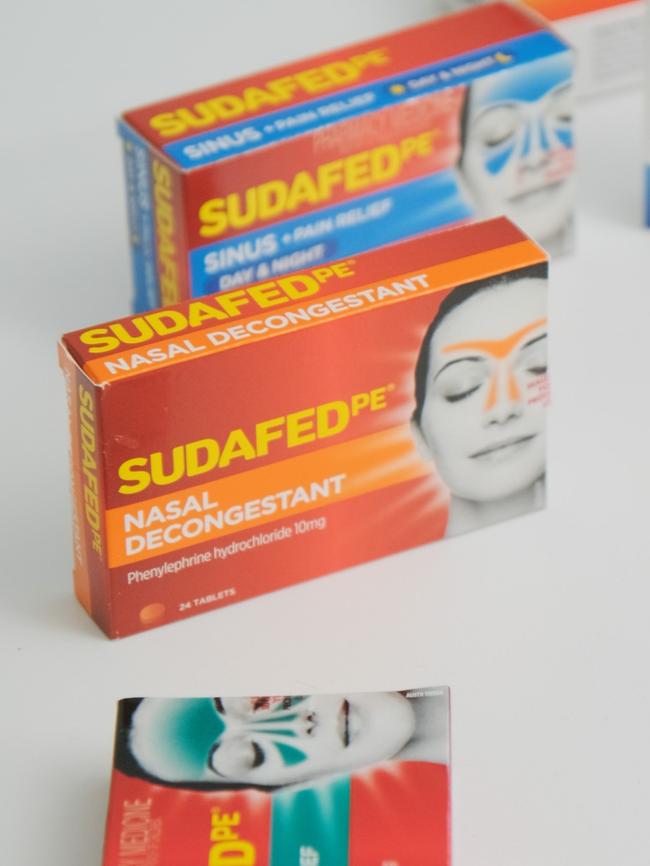Pharmaceutical giant may have ignored research on decongestant for 15 years, class action claims
A lawsuit alleges Johnson & Johnson put ‘profit before people’ by marketing cold and flu tablets containing a drug that is allegedly ineffective at relieving congestion when taken orally.

Publicly accessible research casting doubt about the effectiveness of an ingredient in popular cold and flu tablets has been available for at least 15 years, but Johnson & Johnson continued to market the medication.
The pharmaceutical giant is facing a blockbuster class action, filed in the Australian Federal Court by boutique law firm JGA Saddler, which alleges well known brands including Codral Cold & Flu and Sudafed PE advertised the medication that contained phenylephrine – a drug the company has sold as a decongestant for years.
The lawsuit, filed late last week, has claimed that despite a growing body of evidence that has caused the Food and Drugs Administration in the US to propose an outright ban because it believes the drugs when taken orally don’t work, Johnson & Johnson continued to sell the tablets as an effective decongestant.

A statement of claim in the matter has not yet been released by the court, but the case could rely on publicly available studies that report that phenylephrine was no different from a placebo.
One study, published in 2009 in an American College of Allergy, Asthmas and Immunology journal, found “phenylephrine was not significantly different from placebo in the primary end point”.
The study observed 39 grass-sensitive patients exposed to grass pollen either dosed with immediate-release formulations of phenylephrine, pseudoephedrine (another type of decongestant) as a control, or a placebo.
Pseudoephedrine “was significantly more effective than both” phenylephrine and the placebo for patients in the study, according to an abstract available online.
“During a six-hour observation period, a single dose of pseudoephedrine but not phenylephrine resulted in significant improvement in measures of nasal congestion,” it said.
Another study, also published in 2009 in the same journal, found “there were no statistically significant differences between phenylephrine and placebo for any measures”.
A further study published in 2016 conducted research on 575 patients and concluded phenylephrine tablets “taken orally every 12 hours for seven days is not more efficacious than placebo in relieving nasal congestion caused by allergic rhinitis”.

Last year, the US Food and Drugs Administration released a statement reporting its non-prescription drug advisory committee had met to discuss the drug.
“[The committee] discussed new data on the effectiveness of oral phenylephrine and concluded that the current scientific data do not support that the recommended dosage of orally administered phenylephrine is effective as a nasal decongestant,” the statement said.
“Advisory committees provide independent advice and recommendations to FDA, but the agency makes the final decision. FDA will consider the input of this advisory committee, and the evidence, before taking any action on the status of oral phenylephrine.”
There were no safety concerns about use of the over-the-counter drugs, the FDA statement said.
Late last week JGA Saddler director Rebecca Jancauskas said it was a case of Johnson & Johnson “putting profit before people”.
“Customers should be able to confidently buy medicines that work as advertised and when they don’t, the company involved should be held accountable,” Ms Jancauskas said.
“Johnson & Johnson has manufactured and marketed a medication that decades of evidence have shown doesn’t work as claimed, relying on outdated, fallible studies to sell the Australian public products that don’t do what they claim on the packet.
“Australians have trusted these products to work as advertised and wouldn’t have bought them if they realised they were ineffective at treating congestion.”
Johnson & Johnson was contacted for comment.




To join the conversation, please log in. Don't have an account? Register
Join the conversation, you are commenting as Logout